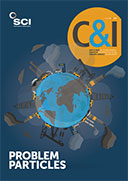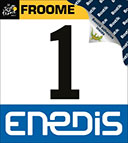|
£16.6m
|
|
£140m
|
|
£11.3m
|
|
20,000t
|
Oncology-focused biotech ASLAN Pharmaceuticals, headquartered in Singapore, has signed a research collaboration agreement with Taiwan’s Academia Sinica’s Genomic Research Centre. The collaboration will focus on understanding and developing Varlitinib, a small molecule pan-HER inhibitor that is currently being developed for multiple cancers.
Pharma concern Almirall, headquartered in Barcelona, Spain, is to collaborate with the Institute of Material Science of Barcelona, CSIC, and private technology Leitat Technology Center, also in Barcelona, on research into nanomedicine for dermatological diseases. The Nano4Derm project, funded by the Spanish Ministry of Economy, Industry and Competitiveness (MINECO), will develop formulations containing nanoencapsulated active ingredients for the topical treatment of inflammatory skin conditions such as acne and psoriasis.
By the end of 2017, BASF will concentrate the production of XPS extruded boards at its Ludwigshafen site in Germany, discontinuing production at the Schwarzheide site. The welding technology developed at Schwarzheide will be transferred to Ludwigshafen. In addition, BASF New Business has announced the acquisition of filament producer Innofil3D, headquartered in the Netherlands, enabling the company to provide not only plastic granulate for 3D printing but also filaments.
GSK is undertaking a strategic review of its cephalosporins antibiotics business, with an option to sell the business and the associated manufacturing plants at Ulverston, Cumbria, Verona in Italy and part of its Barnard Castle site in the UK. The company has also decided to outsource some manufacturing activity at its Worthing site in the UK. GSK will continue to manufacture other antibiotics such as augmentin and research new antibiotics. In addition, the company has also announced it will sell both its Horlicks and MaxiNutrition brands in the UK and close the associated manufacturing site in Slough, and is exploring options to divest other smaller non-core nutrition brands.
Bayer and UK-based Rothamsted Research have entered into a strategic framework agreement to develop customised and sustainable agronomic solutions for farmers, including the use of digital farming technology. The partners will work together in several research areas – from real-time detection of pests in the environment to understanding the evolution of resistance; and from the identification of new modes of action of insecticides to novel approaches to controlling pests. In addition, Bayer and the Citrus Research and Development Foundation (CRDF), a non-profit organisation in Florida supporting citrus growers, have signed a research collaboration agreement to find solutions to citrus greening disease, which currently threatens the global citrus production and juice industry. The partnership is financially supported by PepsiCo and The Coca-Cola Company.
Life-sciences company Cambrex, headquartered in New Jersey, US, is investing $24m in a new facility to manufacture highly potent APIs, in batches from 50 to 300kg, at its Charles City, Iowa, plant. The project will also reconfigure the existing manufacturing area, providing a high containment building to support early stage development and manufacturing across a broad range of scale. Construction and installation of all new equipment is expected to be completed by Q1 2019.
Israel’s Camtek, which provides solutions for enhancing production processes in semiconductor-related industries, has established a strategic cooperation with Sun Chemical, a member of the Japanese DIC group, which produces printing inks, coatings and pigments among other related products. Sun will develop liquid solder mask ink to be used in Camtek's inkjet system for PCB applications.
The Environment Agency, Natural Resources Wales and the Scottish Environment Protection Agency have agreed to the adoption in England, Wales and Scotland of a guidance document produced by trade associations on the assessment and classification of waste packaging, including whether the waste is hazardous (see www.chemical.org.uk/regulatoryissues/environmental/supplementaryguidancetowm3.aspx).
Cancer Research UK and Newcastle University, UK, have announced a three-year extension to their alliance with Astex Pharmaceuticals to identify and develop new cancer drugs and associated biomarkers. Astex retains the right to an exclusive worldwide licence to take the most promising candidates into clinical development. In return, the partners will receive milestone and royalty payments on any compounds that Astex successfully commercialises.
Speciality chemicals firm Clariant has announced that its catalysts business is participating in the Kopernikus technology initiative of the German Federal Ministry of Education and Research, which encourages a switch to renewable energy. Clariant is contributing to the project by designing catalysts, in collaboration with other industrial and academic partners, for the LOHC (liquid organic hydrogen carriers) technology.
The US Food and Drug Administration (FDA) has announced its intent to establish a pilot project programme under the Drug Supply Chain Security Act (DSCSA), developing an electronic system that will identify and trace prescription drugs distributed within the US. Under this voluntary programme, FDA will work with stakeholders to establish pilot projects to explore and evaluate methods to enhance the safety and security of the pharmaceutical distribution supply chain.
Technology software company Digital Science, headquartered in London, UK, is offering up to £25,000 ($35,000) through its annual Catalyst grant for early-stage ideas to develop scientific software tools.
Gas and engineering company Linde Malaysia, a member of the global Linde Group, is investing €30m to expand its gas and liquid production capacities to meet its forecast growth in the central Malaysian region through the next decade. The investment includes a new gas and liquid producing air separation unit at its site in Hicom Industrial Estate, expected to be completed by 2018. In addition, the Linde Group has signed an agreement with isocyanate producer Wanhua Chemical, to invest €106m to expand the supply of gas to Wanhua’s Yantai operations in China.
German chemicals major Merck has opened a new application laboratory for the performance materials sector at the Jinqiao site in Shanghai, China. The laboratory will come under the Technology Application Network China (TANC) and will supply products ranging from plastics, coating, and cosmetic applications, to dispersion paints and powder coating technologies, to quality control and cosmetic testing to China and Southeast Asia.
European fuel cell manufacturer Elcogen will supply its solid oxide fuel cell (SOFC) technology as a clean energy storage system to the REFLEX project, a smart energy hub at the Environment Park in Turin, Italy. The project, a consortium of nine organisations from six EU member states, is funded by the EU Horizon 2020 programme.
Global healthcare major Eli Lilly and research-based biopharmaceuticals Nektar Therapeutics are to co-develop NKTR-358, an immunological therapy discovered by Nektar, which has the potential to treat autoimmune and other chronic inflammatory conditions. Under the terms of the agreement, Nektar will receive an initial payment of $150m and is eligible for up to $250m in additional development and regulatory milestones. Lilly will be responsible for all costs of global commercialisation, Nektar will have an option to co-promote the drug in the US under certain conditions.
Swiss biotech and chemicals company Lonza has acquired Micro-Macinazione, providing micronisation of active ingredients for the pharmaceutical and fine chemical industries, and based in Monteggio,Switzerland. It was purchased from private equity firm Cross. No financial details were disclosed. The acquisition will add to Lonza/Capsugel’s existing micronisation manufacturing capabilities that are based in Quakertown, PA, US.
German chemicals major Evonik is building a new production plant for specialty copolyesters at its Witten site in Germany. The plant, with an annual production capacity of several thousand metric tons, is on track for completion by end of November 2017 with commercial operation planned for Q1/2018.
|
Since the late 1930s, growing numbers of instruments have used strings made of robust nylon fibers —they are environmentally stable, durable, and easy to use. A monofilament made from VESTAMID D18, , a polyamide 612 (PA 612), developed by Germany’s Evonik and China’s NTEC is said to meet all these requirements, as well as outstanding transparency and smooth surface. This last property gives musicians better dexterity when playing, while the high level of transparency enhances the clarity and tone of the strings. The new filament has excellent processing stability, which guarantees the same length of string diameter, resilience and scalability. Strings made from it feature balanced mechanical properties and low hygroscopicity, allowing them to maintain stable frequency and pitch in moist or humid environments. Originally developed for harp strings, with different diameters and winding methods it can equally be used in other string and plucked instruments such as violins.
|


 There have been no significant changes to bicycle saddle technology since the 1960s, with most models conforming to a standardized principle: rails – saddle shell – padding – cover. The disadvantage is that the saddle shell has a dual role: it bears the load of the cyclist and is simultaneously the seat shell, the substructure for the padding. This results in a stiff seat shell, which restricts seating comfort. Ergon’s research team has developed the TwinShell technology, with an ergonomic core. Two shells function in isolation from each other in a sandwich construction, held in a floating arrangement by a high-performance elastomer damper made of Infinergy, an expanded thermoplastic polyurethane (E-TPU) developed by BASF. The lower, supporting shell performs a load-bearing function while the upper, flexible seat shell supports the padding. This not only increases comfort but also allows for an entirely new form of pedaling ergonomics. The saddle follows the natural pedaling movements in all directions, giving the advantage of systematically combining optimised pressure distribution across the sit bones, efficient pedaling ergonomics, excellent vibration damping and active back protection for the first time.
There have been no significant changes to bicycle saddle technology since the 1960s, with most models conforming to a standardized principle: rails – saddle shell – padding – cover. The disadvantage is that the saddle shell has a dual role: it bears the load of the cyclist and is simultaneously the seat shell, the substructure for the padding. This results in a stiff seat shell, which restricts seating comfort. Ergon’s research team has developed the TwinShell technology, with an ergonomic core. Two shells function in isolation from each other in a sandwich construction, held in a floating arrangement by a high-performance elastomer damper made of Infinergy, an expanded thermoplastic polyurethane (E-TPU) developed by BASF. The lower, supporting shell performs a load-bearing function while the upper, flexible seat shell supports the padding. This not only increases comfort but also allows for an entirely new form of pedaling ergonomics. The saddle follows the natural pedaling movements in all directions, giving the advantage of systematically combining optimised pressure distribution across the sit bones, efficient pedaling ergonomics, excellent vibration damping and active back protection for the first time. Race numbers are the surest way for race officials to identify the riders. In recent years, pressure-sensitive race numbers made from stiff material were no longer able to closely fit the mesh of the jerseys, which were becoming very light, supple and elastic, requiring the use of safety pins. So, engineers at Archema’s Bostik business, official partner of the Tour de France, developed an adhesive that is not only effective on the technical fabric of the jerseys, but is also comfortable for the riders and easy to use. Based on solvent-free, pressure-sensitive hotmelt technology, the new race numbers stick perfectly despite the extreme race conditions (resistance to wind, rain, sweat, etc.), offer greater comfort, and are easy to remove at the end of each stage without damaging the jerseys or leaving any marks.
Race numbers are the surest way for race officials to identify the riders. In recent years, pressure-sensitive race numbers made from stiff material were no longer able to closely fit the mesh of the jerseys, which were becoming very light, supple and elastic, requiring the use of safety pins. So, engineers at Archema’s Bostik business, official partner of the Tour de France, developed an adhesive that is not only effective on the technical fabric of the jerseys, but is also comfortable for the riders and easy to use. Based on solvent-free, pressure-sensitive hotmelt technology, the new race numbers stick perfectly despite the extreme race conditions (resistance to wind, rain, sweat, etc.), offer greater comfort, and are easy to remove at the end of each stage without damaging the jerseys or leaving any marks.


